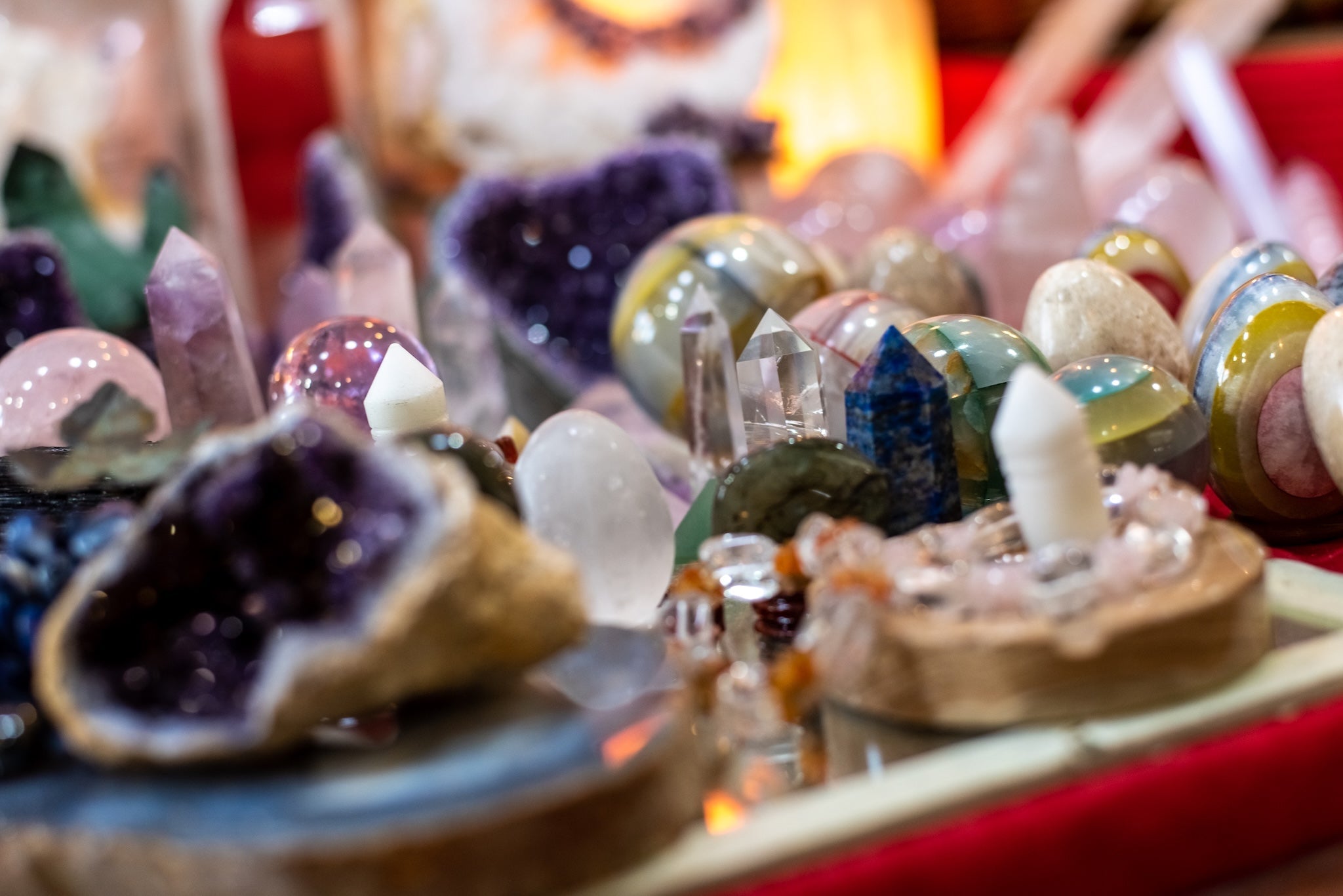As crystals grow in popularity, so does the need to source them ethically. Mining can impact the environment and communities, making it crucial to choose stones that align with your values. This FAQ guide answers key questions about ethical crystal sourcing in 2025, offering practical tips to shop responsibly. From understanding mining practices to supporting fair trade, let’s ensure your crystals bring positive energy to you and the planet.
Q1: What Is Ethical Crystal Sourcing?
Ethical sourcing means obtaining crystals in ways that minimize environmental harm, respect workers’ rights, and support communities. It involves:
-
Sustainable Mining: Reducing ecological damage, like deforestation or water pollution.
-
Fair Labor: Ensuring miners receive fair wages and safe working conditions.
-
Transparency: Providing clear information about a crystal’s origin and journey.
Beginner Tip: Look for sellers who mention ethical practices on their websites.
Advanced Tip: Research specific mining regions (e.g., Brazil for Amethyst) to understand their sourcing challenges.
Q2: Why Does Ethical Sourcing Matter?
Unethical mining can lead to:
-
Environmental Damage: Strip mining for Quartz or Citrine can destroy habitats and pollute water.
-
Worker Exploitation: Miners, often in developing countries, may face low wages or unsafe conditions.
-
Cultural Harm: Sacred sites may be disrupted, affecting indigenous communities.
Ethical sourcing ensures your crystals, like Rose Quartz or Selenite, are acquired responsibly, aligning with their positive energies.
Beginner Tip: Choose one ethically sourced crystal to start your collection mindfully.
Advanced Tip: Support organizations advocating for ethical mining standards in the crystal industry.
Q3: How Can I Identify Ethically Sourced Crystals?
Look for these signs when shopping:
-
Transparency: Reputable sellers disclose mining locations (e.g., Madagascar for Rose Quartz) and ethical practices.
-
Certifications: Some vendors follow fair trade or eco-friendly standards, though certifications are rare in the crystal industry.
-
Small-Scale Mining: Stones from artisanal mines often support local communities over large corporations.
-
Ethical Claims: Sellers may highlight partnerships with sustainable mines or community initiatives.
Beginner Tip: Ask sellers about their sourcing practices before buying.
Advanced Tip: Cross-reference a seller’s claims with industry reports on mining practices in specific regions.
Q4: What Red Flags Should I Watch For?
Be cautious of:
-
Vague Origins: Sellers who can’t specify where crystals come from may hide unethical practices.
-
Unrealistically Low Prices: Dirt-cheap Amethyst or Citrine often signals mass production with poor labor or environmental standards.
-
Lack of Engagement: Reputable sellers are open to questions about sourcing; evasiveness is a warning sign.
Beginner Tip: Avoid bulk sellers with no sourcing details, especially online.
Advanced Tip: Research the environmental impact of specific crystals (e.g., Malachite’s toxicity risks) to spot unsustainable practices.
Q5: How Can I Support Ethical Sourcing?
-
Buy from Reputable Sellers: Choose vendors with clear ethical policies, like those prioritizing artisanal mining.
-
Ask Questions: Inquire about a crystal’s origin, mining methods, and labor conditions.
-
Support Small Businesses: Local or independent crystal shops often have direct relationships with ethical suppliers.
-
Reduce Consumption: Buy fewer, high-quality stones to lessen demand for mass-mined crystals.
-
Educate Others: Share knowledge about ethical sourcing to promote industry change.
Beginner Tip: Start by purchasing one crystal from a seller with transparent sourcing.
Advanced Tip: Advocate for ethical sourcing by supporting campaigns for sustainable mining practices.
Common Challenges and Solutions
-
Challenge: Limited information about sourcing.
-
Solution: Contact sellers directly or choose brands known for ethical practices.
-
Challenge: Higher costs for ethical crystals.
-
Solution: View it as an investment in quality and sustainability.
-
Challenge: Overwhelm with research.
-
Solution: Focus on a few trusted sellers to simplify your shopping.
Explore Zenora’s Collections
Committed to ethical crystal sourcing? Zenora’s ethically sourced stones, including Amethyst, Black Tourmaline, and Selenite, are perfect for building a conscious collection. Explore their range at Zenora’s Crystal Collections to find stones that align with your values.
Final Thoughts
Ethical crystal sourcing is about honoring the earth and its people while enjoying the beauty of stones like Rose Quartz and Citrine. By asking questions, choosing transparent sellers, and supporting sustainable practices, you can make a positive impact in 2025. Shop mindfully, and let your crystals carry the energy of responsibility and care.
Have you found an ethical crystal source, or what’s a sourcing tip you’d share? Tell us in the comments! Follow @zenoraenergy on Facebook or Instagram, or email info@zenoraenergy.com for more ethical sourcing insights.

Share:
The Science Behind Crystals: Do They Really Work?